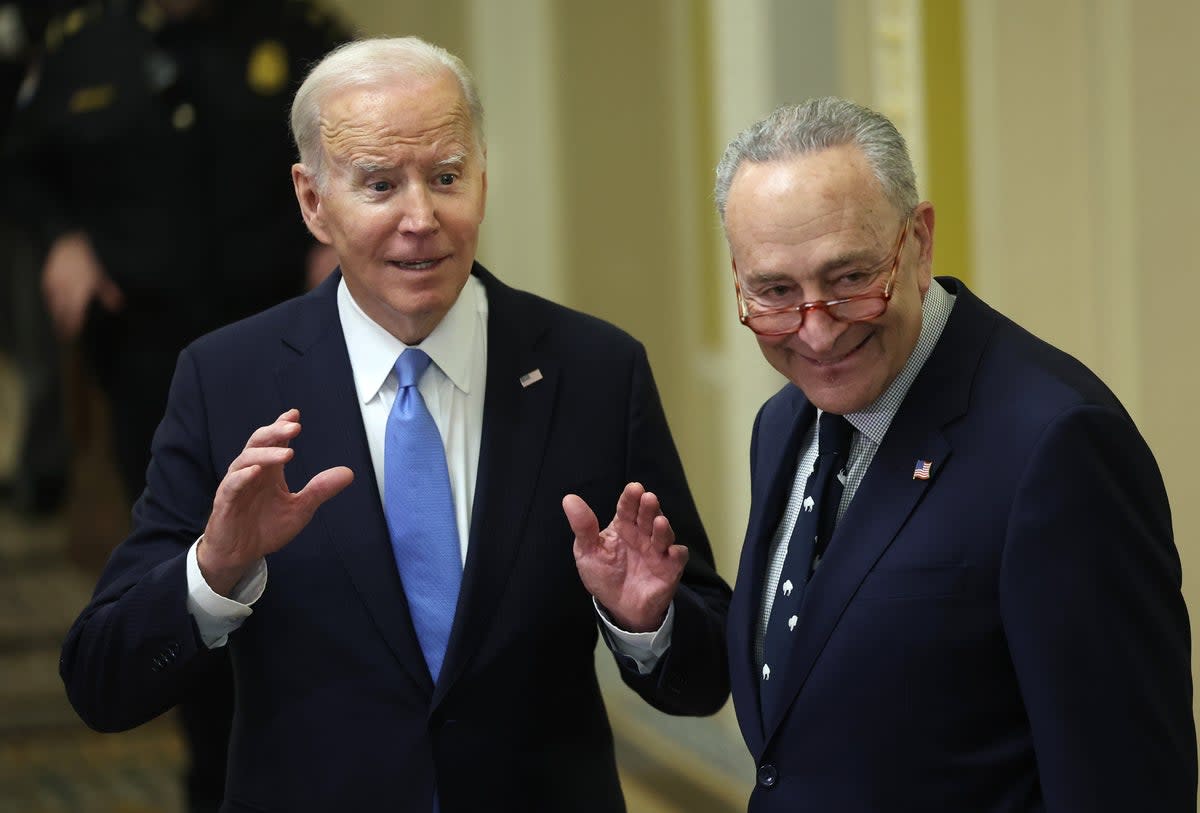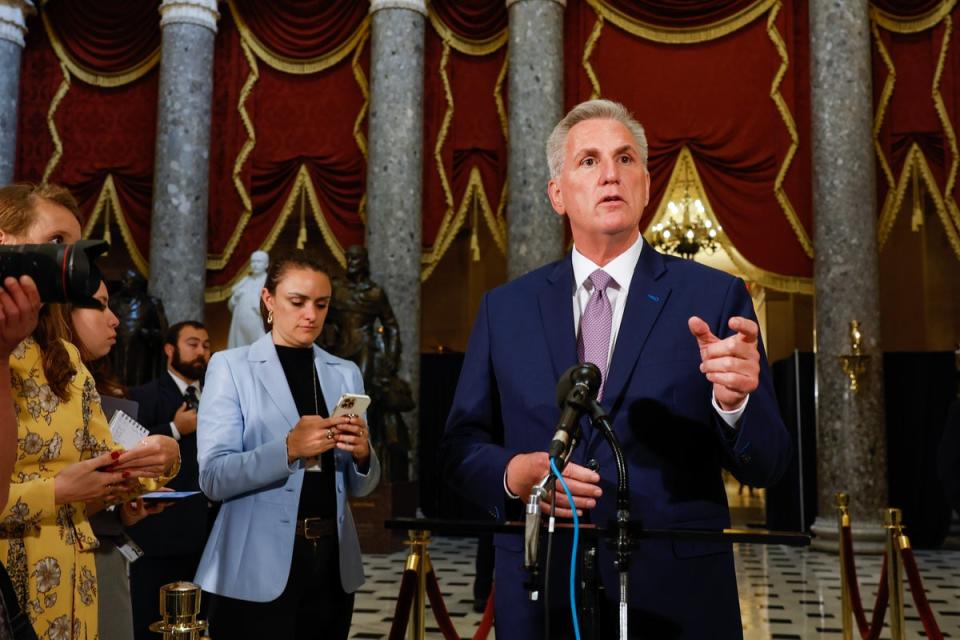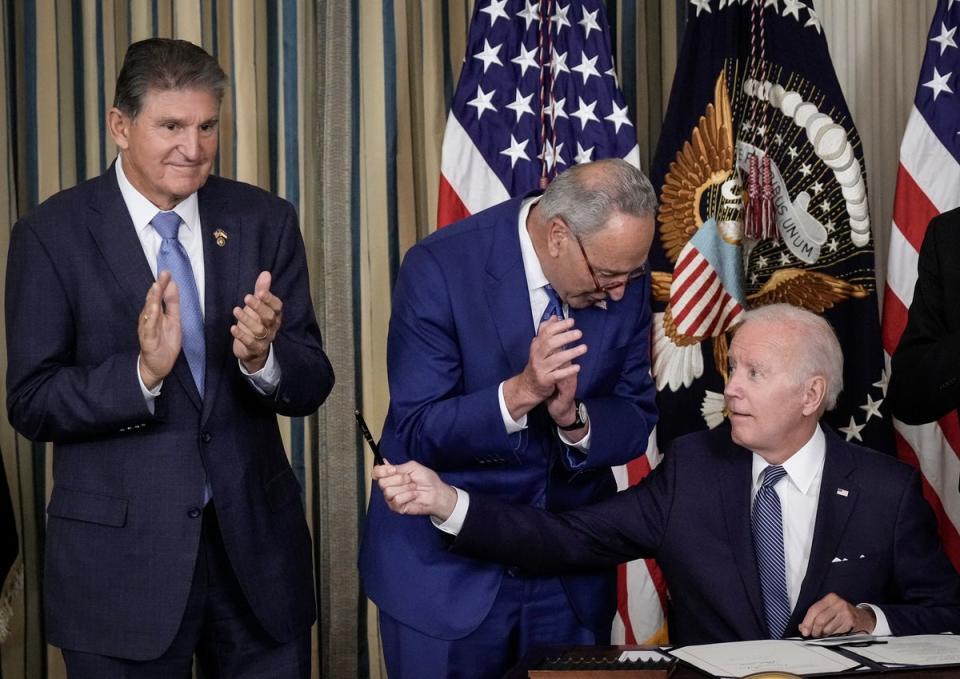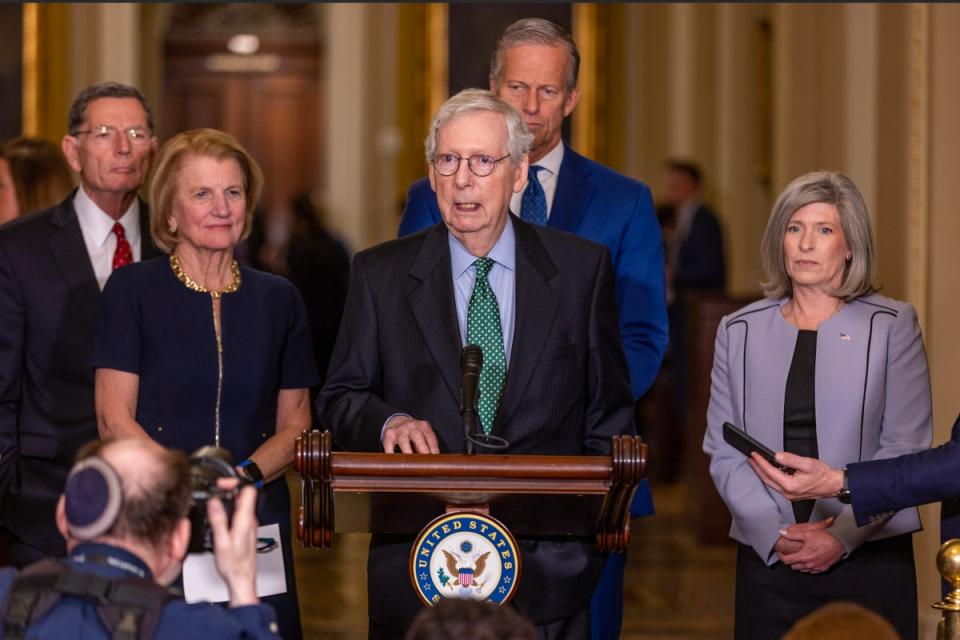Voices: The US soon won’t be able to pay its bills. Here’s who has the most leverage

Throughout the first act of the debt limit standoff, President Joe Biden has said that he preferred a clean increase rather than negotiating over spending cuts.
Mr Biden held this line last week after Speaker Kevin McCarthy’s GOP-led House passed a bill that would raise the debt limit until next year but also included sweeping cuts.
Then on Monday, Treasury Secretary Janet Yellen issued a warning to Congress: the Treasury Department estimated that the US government would not be able to satisfy all of its obligations as early as 1 June. Around that time, Mr Biden phoned Mr McCarthy while the speaker was in Israel, as well as the other congressional leaders, to begin discussions about the debt limit.
On Tuesday, Mr McCarthy accepted a meeting with the president, teeing off the next phase of debt limit negotiations. Here’s who has the most leverage as the next phase begins.

Speaker Kevin McCarthy’s opening bid
Mr McCarthy cleared a huge hurdle last week when he passed a bill to slash spending and raise the debt limit until next year with minimal Republican defections. All things considered, he – and, more importantly, Ms Yellen – forced Mr Biden to blink and begin negotiations. Mr Biden will now have to agree to some spending cuts, even if they aren’t as steep as the ones Mr McCarthy’s conference passed.
But Mr McCarthy still faces significant peril. He barely passed this debt limit increase with his tight margins in the House. Any backpedaling will likely lead to some of the conservatives he had to contort himself to win the speakership staging a mutiny against him. As part of his agreement to get the gavel, he agreed to allow any single member to file a motion to vacate the speaker’s chair, meaning any of them could call for his head if he passes an insufficiently conservative package.
President Joe Biden and the bully pulpit
Mr Biden essentially won the first round of debt limit negotiations when he essentially got Republicans to pledge they would not touch Medicare or Social Security. But the new developments from the Treasury Department will expedite the negotiations. Mr Biden will ultimately have to agree to some spending cuts. But expect him to throw the full weight of the federal government behind any spending cuts he sees as too draconian, as was the case when the Department of Veterans Affairs said the cuts in the package Republicans passed would harm veterans. He will also likely push back against attempts to repeal parts of the Inflation Reduction Act, his signature climate and health care bill.

Senate Majority Leader Chuck Schumer’s Manchin and Sinema problem
As Senate Majority Leader, Mr Schumer has effectively killed the House-passed package. He likely won’t allow any bill to head to the floor that doesn’t have the near-unanimous support of his conference. But, as usual, he has to worry about Senators Joe Manchin of West Virginia and Kyrsten Sinema of Arizona. Ms Sinema, who quit the Democratic Party but remains in the caucus for committee purposes, is longtime friends with Mr McCarthy from her time as a congresswoman, and she could attempt to broker a bipartisan deal. Mr Manchin, for his part, has expressed anger about how the Biden administration has implemented the Inflation Reduction Act, which he brokered with Mr Schumer. Neither Ms Sinema nor Mr Manchin have declared whether they will seek re-election, but any complaints they air could prevent Democrats from showing a unified front against Mr McCarthy or Senate Minority Leader Mitch McConnell.

Mitch McConnell waits in the wings
The savviest and most cutthroat political operator in Washington may be the person ultimately responsible for a final deal on the debt limit. As he’s said before, “There's a reason 'get Joe on the phone' is shorthand for 'time to get serious,' in my office.” Mr McConnell and Mr Biden averted numerous crises when Mr Biden served as Barack Obama’s vice president, and Mr McConnell knows if Mr Schumer and Mr McCarthy reach an impasse, he can emerge as the adult in the room who has the president’s trust. While he does have his share of rambunctious hellraisers like Senators Josh Hawley, Ted Cruz and his perpetual nemesis Rick Scott of Florida, he has far more loyalists and more than enough to get a final debt limit increase through the Senate. And any debt ceiling deal would need at least nine of his Senators to join Democrats, while allowing the rest to keep their conservative credentials.
House Minority Leader Hakeem Jeffries’s first big test
During the speaker vote drama and the debt limit vote last week, Mr Jeffries managed to keep his conference together. He all but inherited the top spot from the best vote counter of the 21st century, former Speaker Nancy Pelosi. But unlike the Senate, minority leaders in the House don’t have as many weapons in their arsenal like the filibuster. That means his main challenge is to make sure Democrats don’t give a single inch on Republican spending demands. Still, on Tuesday, he sent a letter to his colleagues saying Rep Mark DeSaulnier introduced legislation that could serve as an alternative to the debt limit and that Jim McGovern, the top Rules Committee Democrat, filed a rule to allow for a bipartisan debt ceiling increase. Mr Jeffries is hoping that if conservatives propose something too extreme, some more moderate members might defect and join his conference to avoid disaster.


